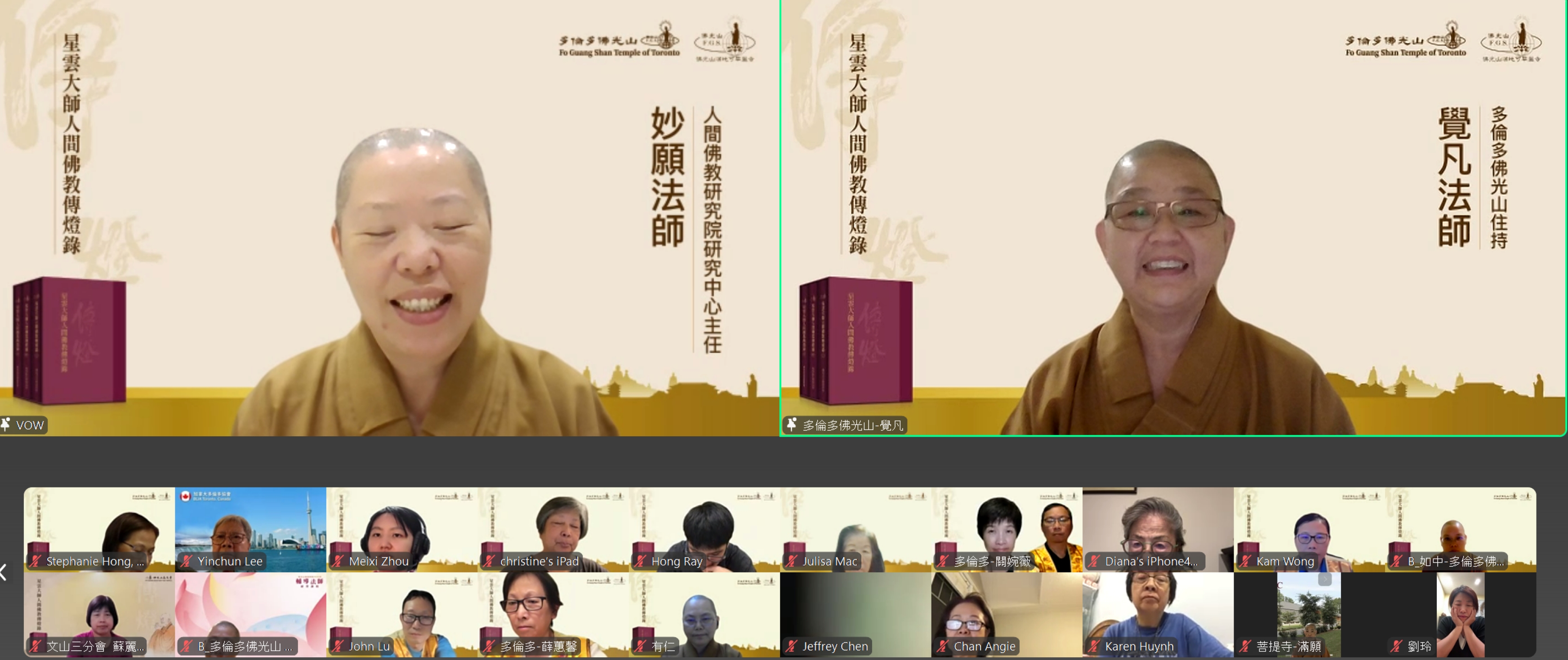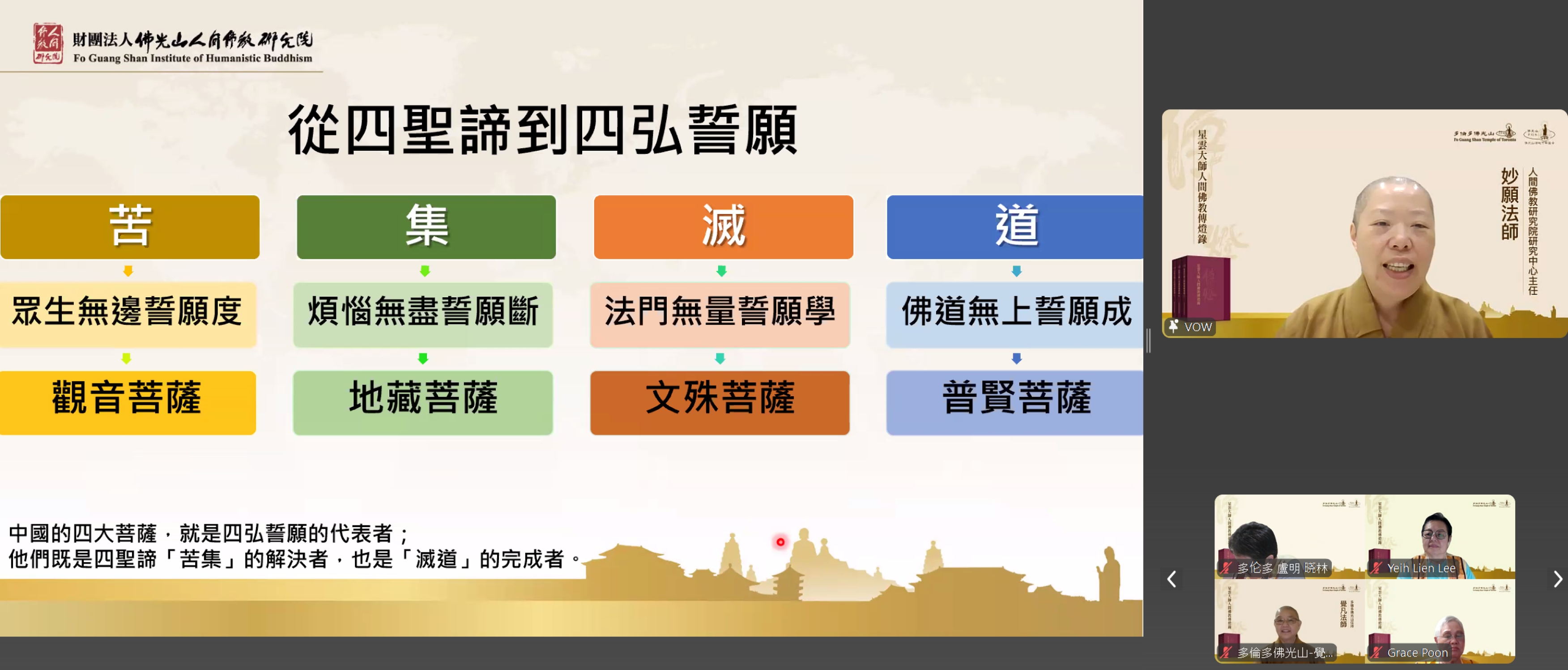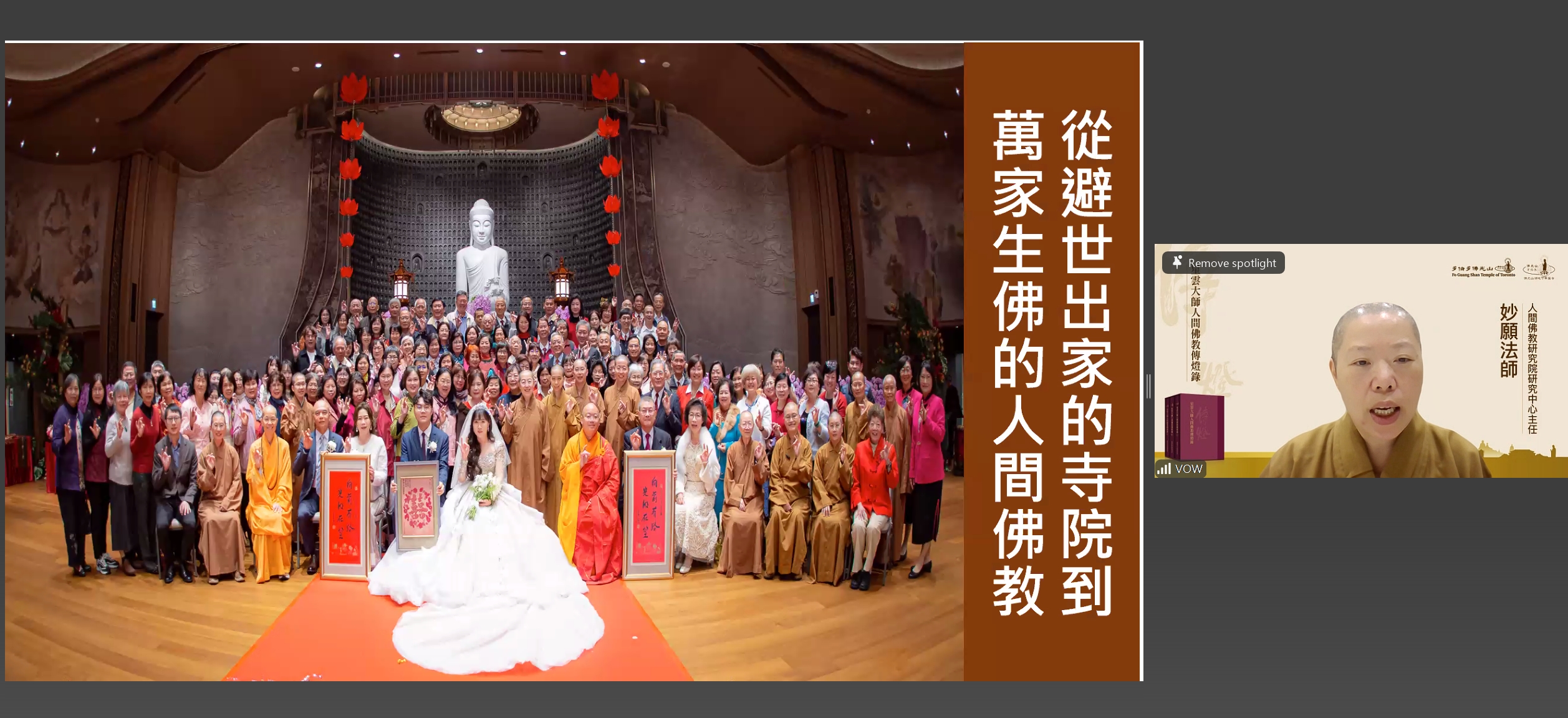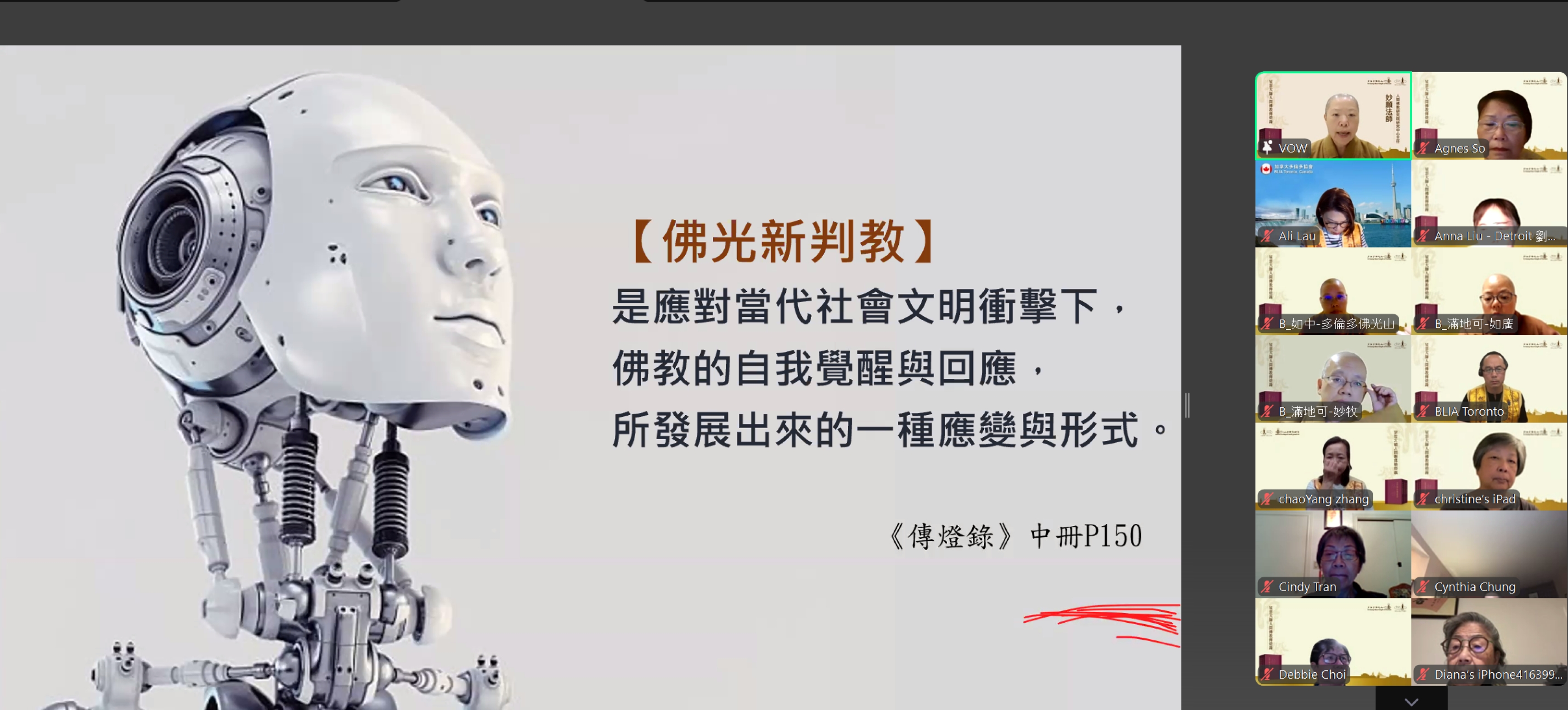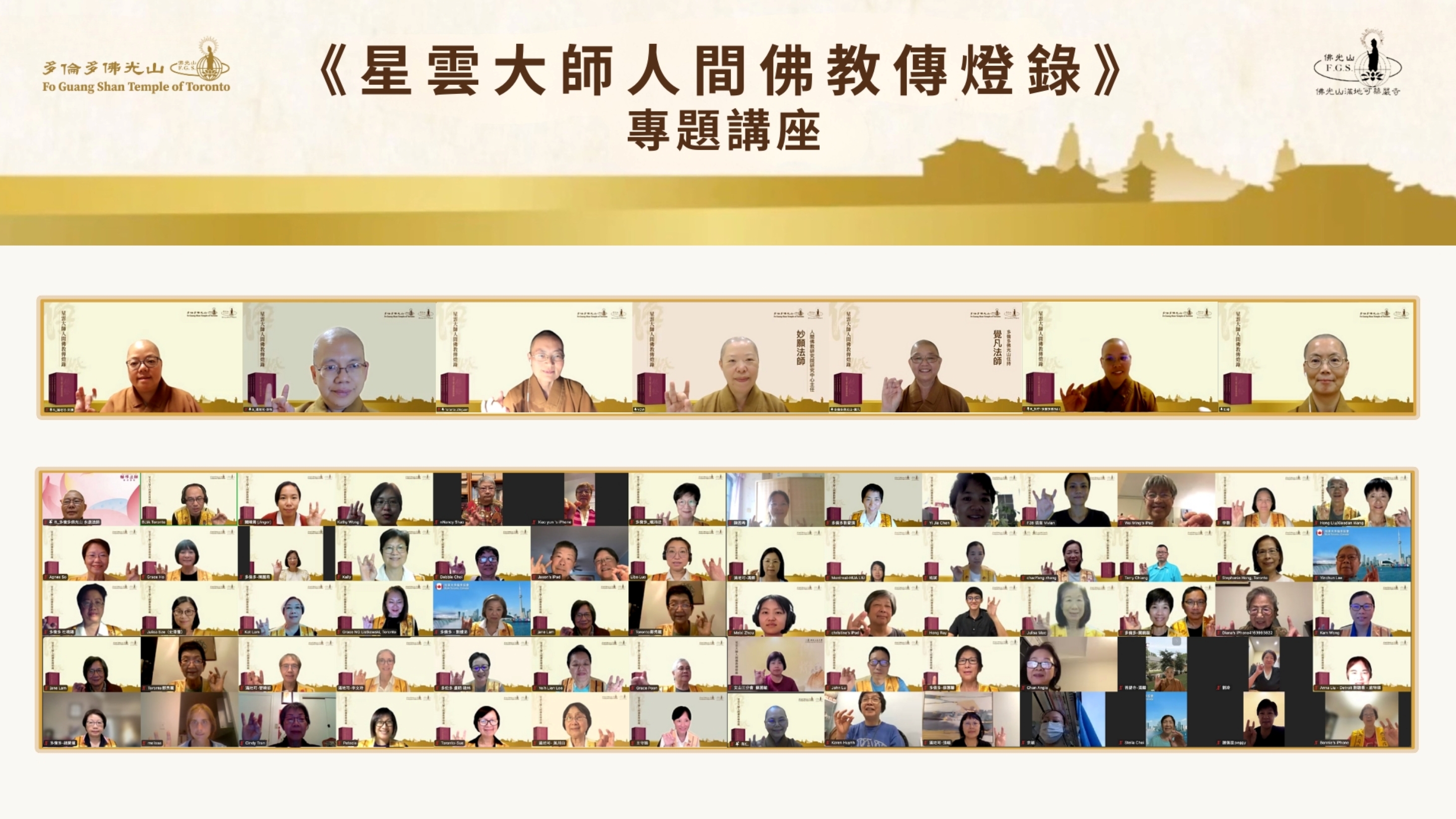
Toronto, August 14, 2025 – Fo Guang Shan Temple of Toronto hosted the fourth online session of the Humanistic Buddhism Transmission Series, part of the Canadian segment of a global lecture initiative organized by the Fo Guang Shan Institute of Humanistic Buddhism (FGSIHB). More than 180 participants from Toronto, Montreal, New York, and other regions joined the lecture, which was led by Venerable Miao Yuan, Director of the FGSIHB Research Center. The session focused on Chapter Five: Integrating the Knowledge and Faith of the Entire Buddhist Culture.
Venerable Miao Yuan introduced the “Fo Guang New Doctrinal Classification,” a framework developed by Venerable Master Hsing Yun. She explained how this system links the sutras, vinaya, and abhidharma across Buddhist traditions while remaining faithful to the Buddha’s original intent. Designed to respond to contemporary realities, the classification seeks to make the Dharma both accessible and applicable to daily life.
Abbess of Fo Guang Shan Temple of Toronto, Venerable Chueh Fan, welcomed the lecture and commended Venerable Miao Yuan’s depth of scholarship. Abbess recalled visiting the Fo Guang Shan Sutra Repository, where Venerable Miao Yuan offered a detailed introduction to the Fo Guang Buddhist Canon, and expressed delight at her sharing once again with the Toronto community.
Addressing the limitations of traditional doctrinal classifications in modern contexts, Venerable Miao Yuan illustrated how Venerable Master Hsing Yun reinterpreted practices. Vegetarianism, once regarded as austere self-denial, is now understood as compassion and life protection. Similarly, temples, once confined to chanting and repentance, now embrace music, cultural showcases, and even Buddhist weddings. Such adaptations, she noted, embody the spirit of Humanistic Buddhism—prioritizing human happiness while remaining rooted in the Dharma.
She further emphasized Venerable Master Hsing Yun’s lifelong efforts to bridge divisions among Buddhist traditions. Through goodwill delegations to Japan, Korea, and Thailand, and cultural initiatives such as Buddhist music showcases, he advanced dialogue, exchange, and unity. His conviction that “there is no separation, we are all one family” continues to guide Fo Guang Shan’s mission worldwide.
In conclusion, Venerable Miao Yuan summarized the three principles of the new doctrinal classification: centering the Buddha’s original intent, transcending sectarian boundaries, and practicing through Humanistic Buddhism. “We are not a new sect,” she affirmed. “We still follow the Noble Eightfold Path. This is Humanistic Buddhism, based on the Buddha’s original intent.”

